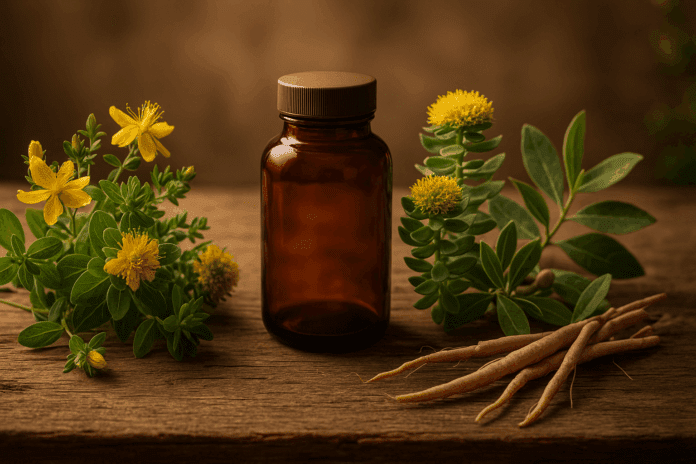For individuals seeking relief from anxiety and depression, the pursuit of effective, sustainable treatments often extends beyond prescription medications. While selective serotonin reuptake inhibitors (SSRIs) like Prozac (fluoxetine) have been widely used in clinical settings for decades, they may not be suitable or desirable for everyone. Concerns about long-term side effects, dependency, withdrawal symptoms, and a desire for more holistic or natural approaches have led many to explore alternative options. In recent years, a growing body of research has examined natural alternatives to Prozac for anxiety and depression, particularly those available over the counter (OTC) or derived from herbal and nutritional sources. These alternatives may not only support mood regulation but also offer benefits for long-term brain health and cognitive longevity.
You may also like : Best Rated Nootropics for Brain Health: Top Supplements to Enhance Focus, Memory, and Longevity
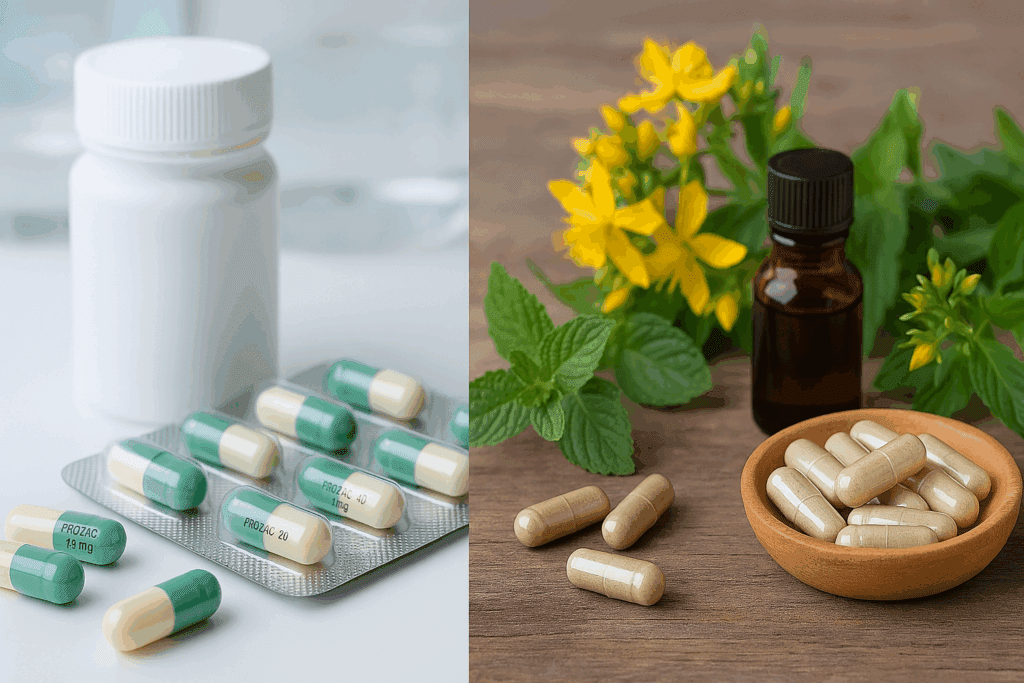
Understanding SSRIs and the Demand for Natural Alternatives
Prozac, along with medications like Lexapro, Zoloft, and Duloxetine, belongs to a class of antidepressants designed to increase serotonin availability in the brain. Although effective for many, these medications can come with a host of side effects such as weight gain, sexual dysfunction, emotional blunting, and even increased anxiety during initial treatment phases. This has sparked interest in natural SSRIs for anxiety and depression, which aim to offer similar benefits with fewer adverse effects.
The term “natural SSRI for anxiety” often refers to substances that support serotonin regulation through non-pharmaceutical means. These may include amino acids, herbal extracts, or nutrients that influence neurotransmitter pathways. While these substances are not SSRIs in the pharmacological sense, some have demonstrated serotonin-enhancing properties in clinical trials. Individuals seeking a natural replacement for Lexapro or a natural alternative to Duloxetine are often motivated by a desire to improve mental health while also preserving overall wellness, cognitive function, and long-term brain resilience.
The Rise of OTC Depression Treatments and Herbal Remedies
Interest in over the counter depression treatment options has surged as consumers grow more comfortable managing mild to moderate mental health conditions outside of traditional clinical settings. The appeal of an over the counter medicine for depression lies in its accessibility, cost-effectiveness, and perceived safety. While these OTC meds for depression are not intended to replace professional mental health care for severe conditions, they can be useful components of a broader mental wellness strategy.
OTC medication for anxiety and depression may include vitamins, amino acids, adaptogens, and herbal remedies with mood-regulating effects. For example, S-adenosylmethionine (SAMe), omega-3 fatty acids, and certain B vitamins are supported by evidence for their antidepressant-like properties. Meanwhile, herbal treatments such as St. John’s Wort and Rhodiola rosea have shown promise as natural alternatives to Prozac for anxiety and depression in both historical use and contemporary research.
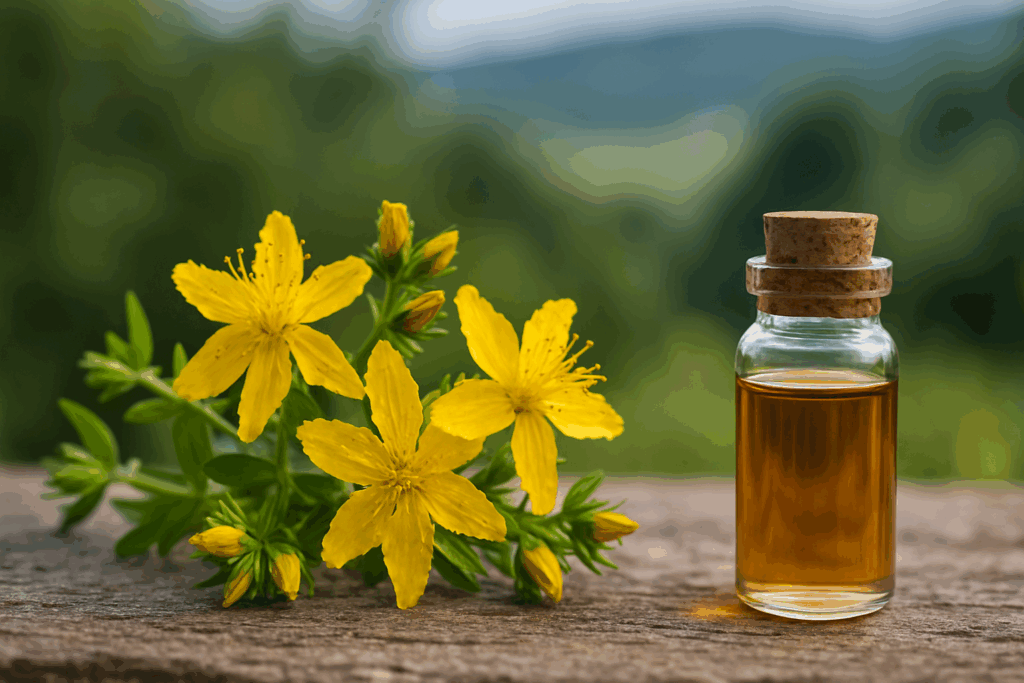
Exploring the Science Behind Herbal Mood Enhancers
One of the best herbal remedies for anxiety and depression, St. John’s Wort (Hypericum perforatum), has been studied extensively for its potential as a natural antidepressant. Its active compounds, including hypericin and hyperforin, appear to influence serotonin, dopamine, and norepinephrine levels. In some studies, St. John’s Wort has shown comparable efficacy to SSRIs like Prozac for treating mild to moderate depression, though it may be less effective for severe cases. It also interacts with a number of medications, which warrants caution.
Rhodiola rosea, an adaptogenic herb native to Arctic regions, is another natural substitute for Lexapro that supports mood and resilience to stress. Research indicates that Rhodiola may modulate cortisol levels, improve energy, and reduce fatigue and symptoms of burnout. It has demonstrated positive effects in clinical trials involving individuals with mild depression and anxiety.
Ashwagandha (Withania somnifera), long used in Ayurvedic medicine, is emerging as a powerful over the counter med for depression and anxiety. It exerts its effects by regulating the hypothalamic-pituitary-adrenal (HPA) axis, supporting GABA signaling, and reducing oxidative stress—all of which play a role in emotional stability. In randomized controlled trials, Ashwagandha supplementation has been linked to lower anxiety scores, improved sleep, and enhanced cognitive function.
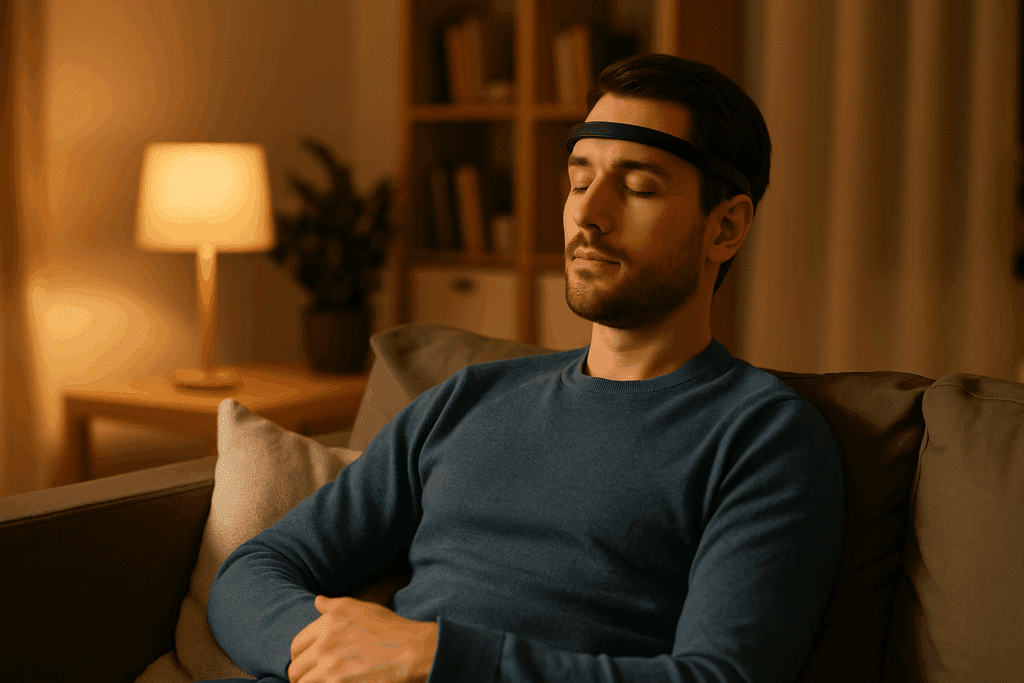
Neurofeedback and Biohacking Tools for Mood Enhancement
In recent years, non-invasive technologies that enhance brain function have become more accessible to consumers. Neurofeedback, a method that trains the brain using real-time EEG feedback, has shown promise in managing anxiety, depression, PTSD, and ADHD. By promoting specific brainwave patterns associated with calm and focus, neurofeedback sessions can reduce emotional dysregulation and improve cognitive performance.
Biofeedback tools that track heart rate variability (HRV), skin temperature, or breath rate can also be employed to support stress regulation and resilience. Devices like the Muse headband or HeartMath sensors allow individuals to train their stress response and create healthier autonomic nervous system balance. When paired with natural alternatives to Prozac for anxiety and depression, these devices offer a powerful, multidimensional strategy for improving emotional well-being.
Light therapy, another underutilized intervention, is particularly effective for individuals experiencing seasonal affective disorder (SAD) or circadian rhythm disturbances. Bright light exposure, especially in the early morning, can influence serotonin synthesis and melatonin regulation, helping to stabilize mood and improve sleep—two critical elements of mental health.

The Role of Neuroplasticity and Lifestyle-Based Mood Modulation
One of the most promising frontiers in mental health management involves stimulating neuroplasticity through natural means. Neuroplasticity refers to the brain’s ability to reorganize itself by forming new neural connections, a capacity that underlies emotional learning, recovery from trauma, and the ability to overcome depression and anxiety. Emerging evidence suggests that certain lifestyle factors can profoundly influence this process, potentially offering benefits akin to pharmacological antidepressants.
Regular physical activity, especially aerobic exercise, has been repeatedly shown to increase brain-derived neurotrophic factor (BDNF), a key molecule involved in neuroplasticity and cognitive health. Moderate-intensity exercise for 30 minutes a day can produce measurable improvements in mood, reduce inflammation, and improve sleep quality—all without the side effects associated with SSRIs. These effects make exercise a valuable adjunct or, in some cases, a primary intervention for individuals seeking a natural SSRI for anxiety and depression.
In a similar vein, mindfulness meditation and structured breathwork have demonstrated ability to reduce activity in the amygdala (the brain’s fear center) and increase prefrontal cortex connectivity. Long-term meditation practices are associated with reductions in rumination, emotional reactivity, and anxiety, while increasing emotional regulation. These lifestyle strategies are accessible and empower individuals to take an active role in their mental well-being, serving as functional analogs to pharmacologic treatments.
Amino Acids and Nutritional Support for Mood Regulation
Beyond herbs, amino acids are among the most promising OTC depression treatments due to their direct involvement in neurotransmitter synthesis. L-tryptophan and 5-hydroxytryptophan (5-HTP) serve as precursors to serotonin, and supplementing with these compounds may help boost serotonin levels naturally. While they should not be combined with SSRIs due to the risk of serotonin syndrome, they offer a natural alternative for those not currently on prescription antidepressants.
Another key amino acid, L-theanine, found in green tea, is renowned for its calming effects without sedation. It works by increasing alpha brain wave activity and modulating neurotransmitters like GABA and dopamine. L-theanine can serve as a natural SSRI for anxiety by promoting relaxation, improving attention, and reducing stress reactivity, particularly when paired with caffeine in low doses.
Nutritional cofactors such as magnesium, folate, and vitamin B12 are essential for neurotransmitter function. Deficiencies in these nutrients have been linked to increased risk of depression. Supplementing with a high-quality B-complex vitamin may serve as an effective natural replacement for Lexapro in individuals with suboptimal nutrient status. Magnesium, in particular, has been shown to reduce depressive symptoms in both young adults and older populations, making it a valuable over the counter medication for anxiety and depression.
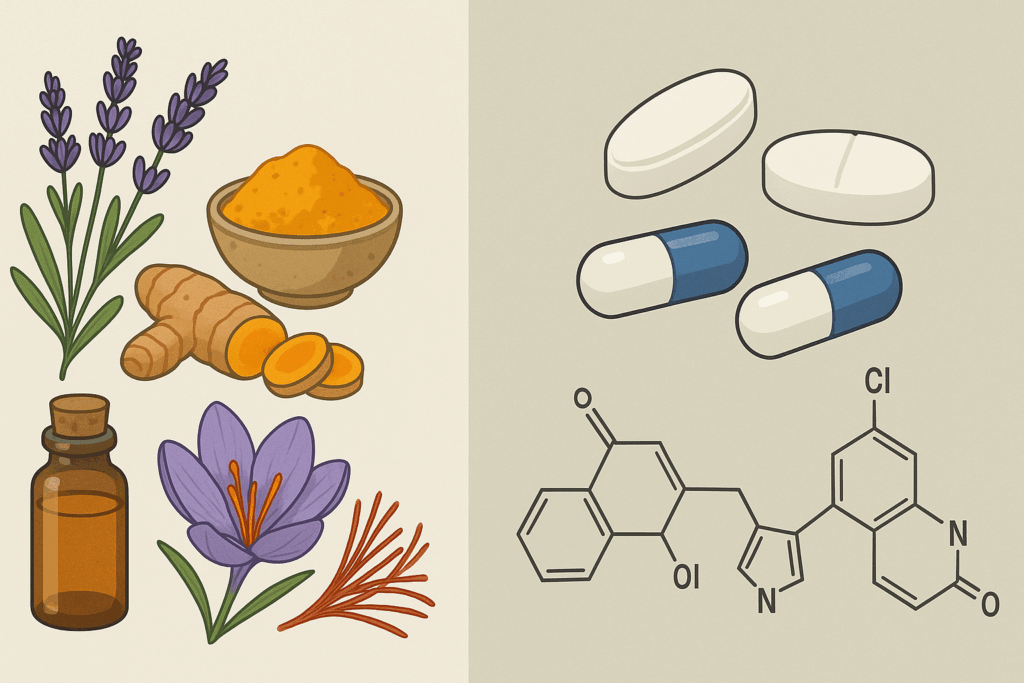
Natural Alternatives to Zoloft and Duloxetine
Zoloft (sertraline) and Duloxetine (Cymbalta) are commonly prescribed for both depression and anxiety. However, some individuals experience side effects that prompt them to seek a sertraline over the counter alternative or a natural alternative to Duloxetine. In such cases, botanicals and nutraceuticals offer several viable options.
Lavender oil extract, particularly the standardized form known as Silexan, has shown anxiolytic effects in randomized controlled trials comparable to those of low-dose benzodiazepines and SSRIs. It is generally well tolerated and may be a suitable over the counter substitute for Zoloft for those with mild anxiety. Meanwhile, curcumin, the active compound in turmeric, has demonstrated antidepressant effects in clinical trials and may act as a natural alternative to Duloxetine by modulating inflammatory pathways and increasing brain-derived neurotrophic factor (BDNF).
Another promising compound is saffron extract, which has been shown in several trials to significantly reduce depressive symptoms. Its mechanisms of action may involve serotonin reuptake inhibition and antioxidant effects. As a plant-based, well-tolerated option, saffron serves as one of the best herbal remedies for anxiety and depression, particularly when standardized to clinically effective doses.
OTC Mood Supplements and Cognitive Longevity
The interplay between mental health and cognitive aging has become increasingly recognized in the scientific community. Chronic anxiety and depression are not only disruptive to daily life but are also associated with long-term risks such as cognitive decline and neurodegenerative disease. Therefore, identifying OTC meds for depression that also support brain health is critical for individuals looking to maintain emotional stability and mental sharpness well into older age.
Phosphatidylserine, a phospholipid crucial for neuronal function, has been shown to improve memory and mood, particularly in older adults. It may serve as an over the counter med for depression by supporting healthy brain cell membranes and stress response. Likewise, acetyl-L-carnitine has been investigated for its ability to enhance mitochondrial function and reduce depressive symptoms, especially in older adults with mild cognitive impairment.
Lion’s Mane mushroom (Hericium erinaceus) is another natural compound that has gained popularity for its dual role in mood support and neuroprotection. It stimulates nerve growth factor (NGF) synthesis and has been associated with improvements in mild depression and cognitive function. Its use as a natural SSRI for anxiety and cognitive support aligns well with the goals of those seeking sustainable mental wellness solutions.
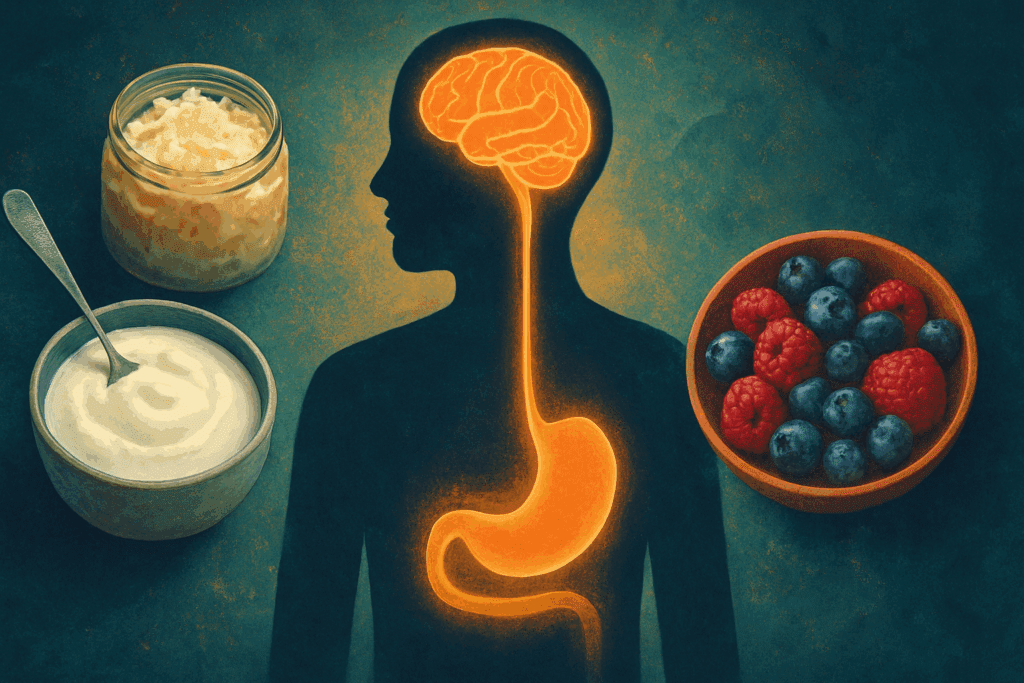
The Role of Gut Health in Emotional Well-Being
Emerging research highlights the role of the gut-brain axis in mood regulation. The microbiome’s influence on neurotransmitter production and systemic inflammation suggests that gut health may be an underappreciated factor in emotional resilience. Probiotics, prebiotics, and fermented foods may serve as subtle yet impactful components of a comprehensive over the counter medicine for depression approach.
Certain strains of probiotics, including Lactobacillus helveticus and Bifidobacterium longum, have been shown to reduce symptoms of anxiety and depression in both human and animal studies. These psychobiotics may act as a natural replacement for Lexapro in individuals with gut-related dysregulation or inflammatory conditions. By improving intestinal barrier integrity and reducing systemic inflammation, they help create a biochemical environment conducive to balanced mood and cognitive clarity.
Practical Considerations and Limitations
While the evidence supporting natural alternatives to Prozac for anxiety and depression is encouraging, it is essential to approach these options with discernment. Not all supplements are created equal, and product quality, dosage, and individual biochemistry play significant roles in effectiveness. It is advisable to consult with a healthcare provider before starting any new supplement, particularly if you are taking medications, have preexisting conditions, or are pregnant or breastfeeding.
Moreover, the regulatory environment for supplements is not as rigorous as that for pharmaceuticals, meaning consumers must be diligent in sourcing high-quality products from reputable manufacturers. Looking for third-party certifications and standardized extracts can help ensure product safety and efficacy. When used as part of a holistic mental wellness strategy that includes lifestyle modifications such as exercise, mindfulness, sleep optimization, and social support, these natural alternatives can serve as valuable tools.
Psychedelic Microdosing and Legal Gray Areas
Though controversial, microdosing psychedelics such as psilocybin and LSD has gained significant attention as a potential alternative to conventional antidepressants. While these substances remain controlled in many jurisdictions, their use in microdoses (typically one-tenth to one-twentieth of a recreational dose) is being explored for their capacity to promote neuroplasticity, creativity, and emotional clarity.
Preliminary studies and anecdotal reports suggest that microdosing may lead to improvements in mood, anxiety, focus, and emotional processing without the hallucinogenic effects associated with full doses. Though not traditionally categorized as over the counter medication for anxiety and depression, these practices fall within the scope of natural and neurochemical enhancement. As the regulatory landscape evolves, microdosing may become an increasingly mainstream option for individuals seeking alternatives to SSRIs such as Prozac and Zoloft.
Psychedelic-assisted therapy, including the supervised use of ketamine, MDMA, or psilocybin in clinical settings, is also showing promise for treatment-resistant depression. While these are not OTC options, their emergence signals a paradigm shift in how clinicians and patients view the biology of depression, emphasizing healing through experiential neuroplasticity rather than symptom suppression.
The Future of OTC Psychiatry: Combining Tradition with Technology
As awareness of mental health grows, the OTC psychiatry landscape is evolving. No longer limited to herbal teas and generic vitamins, today’s over the counter for depression options include precision nutraceuticals, digital mental health tools, and personalized supplement regimens informed by genetic testing and wearable data.
This integrative, data-driven approach is reshaping how we understand and treat depression. It promotes a model of care that empowers individuals to take control of their mental health journey, combining ancient healing wisdom with modern technology and scientific rigor. Rather than being passive recipients of treatment, patients become active participants, tailoring their interventions to suit their biology, lifestyle, and preferences.
This shift also aligns with broader trends in preventive medicine and anti-aging science. Depression is no longer viewed merely as a chemical imbalance to be managed with pharmaceuticals but as a complex, multifactorial condition influenced by inflammation, stress, trauma, lifestyle, and microbiome health. Addressing these factors comprehensively offers a more sustainable, root-cause approach to long-term emotional resilience.
Frequently Asked Questions: Over-the-Counter and Natural Alternatives for Depression and Anxiety
1. Are over-the-counter depression treatments effective for long-term use, or should they be considered temporary solutions?
Over-the-counter depression treatments can offer meaningful support, particularly for individuals with mild to moderate symptoms, but their long-term effectiveness varies. While some OTC options like saffron extract or SAM-e show promise in clinical trials, they often lack the robust, longitudinal data seen with prescription SSRIs. That said, many users report sustained benefits when these options are combined with lifestyle strategies like therapy, nutrition, and exercise. If you’re seeking a natural substitute for Lexapro or an over-the-counter substitute for Zoloft, it’s essential to regularly assess your progress with a healthcare provider. OTC depression approaches are best viewed not as temporary fixes but as part of a broader, personalized mental health plan.
2. How do OTC medications for anxiety and depression compare to prescription SSRIs in terms of side effects and safety?
OTC medications for anxiety and depression generally have fewer and milder side effects than prescription SSRIs, making them appealing to individuals concerned about long-term pharmaceutical use. However, this doesn’t mean they’re risk-free—some, like St. John’s Wort, can interact with other medications, including birth control or anticoagulants. When exploring options such as a natural replacement for Lexapro or a natural alternative to duloxetine, it’s crucial to understand the pharmacokinetics and potential herb-drug interactions involved. OTC meds for depression often offer gentler mood modulation but might take longer to show effects, especially if taken without professional guidance. Always prioritize transparency with your doctor when integrating OTC approaches into your treatment strategy.
3. Is there any science behind using natural SSRIs for anxiety relief?
Yes, emerging research supports the idea that some botanicals and nutrients act as natural SSRIs for anxiety by influencing serotonin pathways. For example, 5-HTP, a precursor to serotonin, and compounds like rhodiola and saffron have shown promise in improving mood and stress resilience. While these options are often marketed as natural alternatives to Prozac for anxiety, they aren’t directly interchangeable with prescription medications in dosage or mechanism. A true natural SSRI for anxiety will generally offer more gradual improvements and should be selected based on individual neurochemistry and lifestyle factors. Consulting with an integrative psychiatrist can help ensure you’re using the best herbal remedy for anxiety and depression that matches your physiological needs.
4. What role do gut health and inflammation play in the effectiveness of OTC depression treatments?
Recent advances in psychoneuroimmunology suggest that gut health and systemic inflammation are critical in how individuals respond to OTC depression interventions. Many natural treatments, like turmeric or probiotics, function not only as mood enhancers but also as anti-inflammatory agents. This is especially relevant for those exploring an over-the-counter med for depression, as they may see amplified benefits when addressing gut-brain axis imbalances. The best herbal remedy for anxiety and depression often includes compounds that support digestive and immune health, indirectly stabilizing mood. Treating underlying inflammation can make OTC depression strategies far more effective than targeting neurotransmitters alone.
5. Can natural substitutes for Lexapro or Zoloft be used alongside conventional antidepressants?
Yes, but with caution. Some natural replacements for Lexapro—such as magnesium, L-theanine, or omega-3 fatty acids—can safely complement SSRIs when monitored closely. However, potent botanicals like St. John’s Wort or 5-HTP may increase serotonin levels dangerously when combined with prescriptions, potentially leading to serotonin syndrome. If you’re seeking an over-the-counter substitute for Zoloft to taper off medications or enhance treatment, always do so under medical supervision. A layered approach using both pharmacological and natural strategies can work well but should be guided by labs, symptoms, and genetic predispositions. Blending conventional and OTC depression strategies can be both safe and effective when done correctly.
6. Are OTC meds for depression suitable for teenagers and young adults?
In some cases, yes—particularly when professional support is limited or when prescription medication isn’t desired. Teenagers may benefit from milder interventions like saffron, magnesium, or L-theanine, which are being studied as natural alternatives to Prozac for anxiety in adolescents. However, OTC meds for depression should never be a standalone solution in this age group. Teens face unique hormonal and social stressors that demand comprehensive care, including therapy, family support, and possibly nutritional intervention. If a parent is considering an over-the-counter for depression for a young person, it’s vital to consult a pediatric mental health provider first.
7. How do lifestyle and environment impact the success of natural SSRI alternatives?
Environment and daily habits play a significant role in the effectiveness of natural SSRIs for anxiety. Factors such as sleep quality, screen time, physical activity, and exposure to nature can influence neurotransmitter levels just as much as any supplement. Someone using an over-the-counter medicine for depression might not see full benefits unless they also address lifestyle imbalances that contribute to low mood. For those seeking a natural Lexapro or a natural alternative to duloxetine, aligning supplementation with behavior change yields far greater long-term results. The mind-body connection is central to natural healing approaches, especially when using OTC medication for anxiety and depression.
8. What’s the future of OTC depression treatments in mental health care?
The landscape is evolving quickly, with more clinical trials and data supporting the use of botanical nootropics, adaptogens, and nutritional psychiatry. Innovations such as precision dosing based on genetic testing and microbiome analysis are making over-the-counter med for depression a more personalized endeavor. The integration of AI-driven mental health platforms may also support OTC interventions by tracking mood and guiding dosage changes. As stigma around mental health fades, more individuals will likely explore natural alternatives to Prozac for anxiety before jumping into long-term prescriptions. The future will likely blend digital, dietary, and botanical solutions into cohesive, individualized care plans that support emotional resilience.
9. How do people typically respond to switching from prescription antidepressants to OTC alternatives?
Experiences vary widely. Some individuals transitioning to a natural replacement for Lexapro report improved energy, fewer sexual side effects, and more emotional clarity. Others may struggle initially due to withdrawal symptoms or because the OTC options are slower to act. It’s important to taper off under professional supervision and have a buffer period where mood and functionality are closely monitored. Those switching to an over-the-counter depression treatment should not expect a one-to-one effect; instead, focus on overall wellbeing and functionality over immediate symptom suppression. Successful transitions usually include dietary changes, exercise, mindfulness practices, and careful tracking of mood shifts.
10. Are there specific signs that an over-the-counter for depression is working?
Yes—improvements may include better sleep quality, enhanced emotional regulation, increased motivation, and reduced irritability. Unlike prescription antidepressants, which often have a stark onset of action, the effects of a sertraline over-the-counter alternative are typically subtler and cumulative. Journaling or using mental health tracking apps can help identify these changes over time. If you’re trying an OTC medication for anxiety and depression, look for markers like reduced reactivity in stressful situations and improved focus. These signs suggest the natural systems are rebalancing, and the treatment may be promoting long-term mental resilience.
Conclusion: Embracing Natural and OTC Options for Depression and Brain Longevity
As the conversation around mental health continues to evolve, so too does the array of options available for managing mood disorders. Natural alternatives to Prozac for anxiety and depression offer a compelling path for those who seek effective, evidence-based treatments without the burden of pharmaceutical side effects. Whether through herbal remedies, amino acids, or nutraceuticals that support neurotransmitter function and cognitive resilience, these options reflect a growing demand for holistic, integrative approaches to mental wellness.
For individuals exploring over the counter depression treatment strategies, the key lies in informed choice. Supplements such as Rhodiola, Ashwagandha, SAMe, and magnesium present viable alternatives to conventional antidepressants, especially when guided by medical insight and individualized assessment. Moreover, OTC medication for anxiety and depression that also supports brain health—such as Lion’s Mane, phosphatidylserine, and saffron—may offer added benefits for cognitive longevity.
In the quest for emotional well-being, the goal should not be merely symptom reduction but the cultivation of long-term brain health and life satisfaction. By integrating well-researched OTC meds for depression into a thoughtful mental wellness plan, individuals can move toward a more empowered, sustainable approach to managing anxiety and depression while supporting the vitality of the brain over time.
Further Reading:
13 Over-the-Counter (OTC) Natural Remedies for Anxiety

